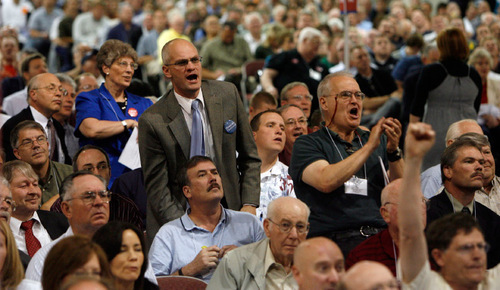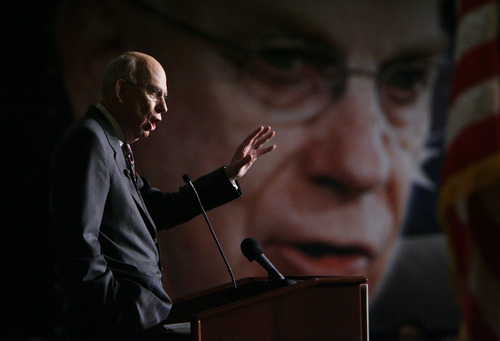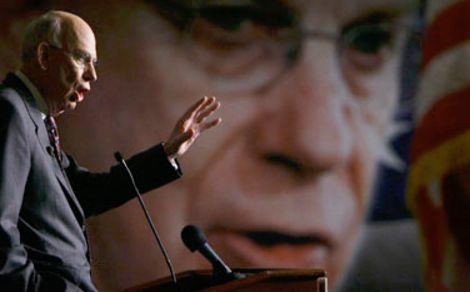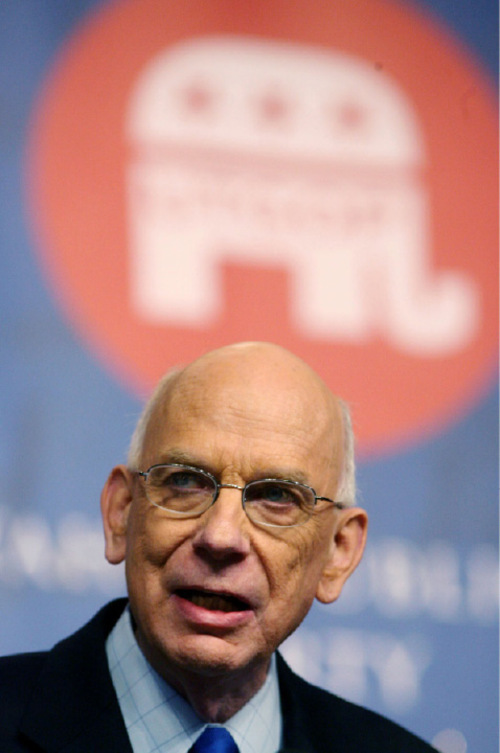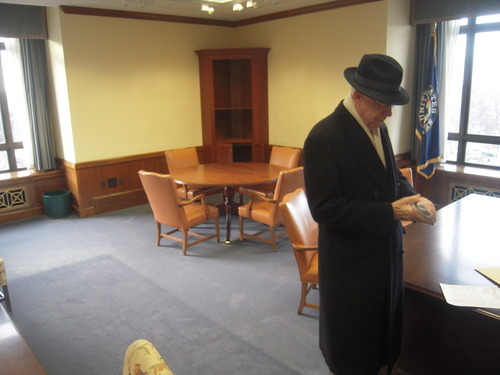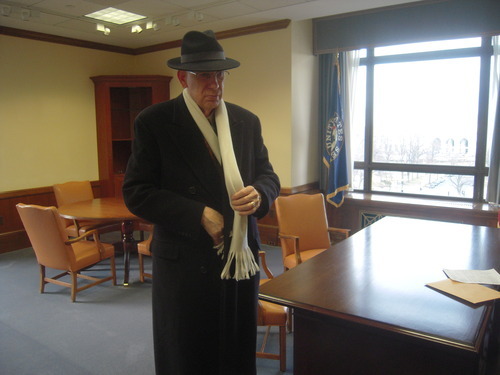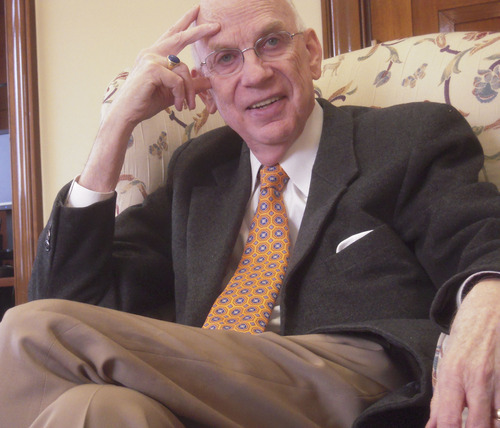This is an archived article that was published on sltrib.com in 2011, and information in the article may be outdated. It is provided only for personal research purposes and may not be reprinted.
Washington • Ask Sen. Bob Bennett about his legacy and he'll ask you to look at a series of photographs.
Not of him, mind you, but of countless senators who have come before and whose names few, if any, could rattle off without reading the plaques adorning the Capitol's basement walls.
"The legacy thing will pass really, really fast," Bennett said recently, before packing up his office and leaving his career in elective politics. "And I am not as concerned about that."
Seven months after Utah GOP delegates denied Bennett the chance at a fourth term, the senator on Monday will hand over his mantle to incoming Sen. Mike Lee in what should be a bittersweet moment for Bennett, the son of a senator who has spent a good portion of his life in Washington politics.
However, Bennett will shed no tears.
And while he might not go down in history as a well-known political figure, his legacy can be witnessed daily in Utah with light rail cars humming through the Salt Lake Valley, commuter trains rumbling along the Wasatch Front, cars rolling on an enlarged Interstate 15 corridor and former Olympic venues dotting the landscape.
Bennett, a member of the powerful Appropriations Committee, funneled hundreds of millions of dollars into Utah for those projects and countless others at universities, small towns and private companies.
"I do not apologize for any of those activities because I think in every case, there's been a significant benefit, not just to Utah, but to the federal treasury," Bennett says, arguing that in a cost-benefit analysis, those investments paid off. But there's no arguing that those expenditures became a political liability for Bennett this year.
The senator recalls lesser known accomplishments, notably his work in heading off the so-called Y2K problem that in the late 1990s wrought fears of a computer system meltdown. America, and her computers, entered the year 2000 seamlessly, however, and Bennett took a few lumps for causing a stir.
Ten years later, Bennett says he is still proud of his work on the project.
Another forgotten Bennett project was his help in solving the Mexican peso crisis of 1994 by floating $50 billion in loan guarantees that were later paid back.
But it was Bennett's work in turning back a financial crisis in 2008 — and approving the $700 billion Troubled Asset Relief Program — that earned him the ire of his party in Utah and eventually a pink slip.
"I guess I'd like to be known as someone who tried to solve problems," Bennett says in retrospect.
It's that temperament — and his ability to reach across the aisle to work things out — that earned Bennett respect in Washington. "I'm very fond of him," said Sen. Chris Dodd, D-Conn., who worked closely with Bennett on TARP and various issues on the Senate Banking Committee. "This is not just a senator, he happens to be a very productive and constructive one."
As Bennett was exiting the Senate, praise poured in from colleagues on both the right and left of the political spectrum.
"Bennett and I have not always seen eye to eye on many issues," said Sen. Dick Durbin, the Democratic whip from Illinois. "But my respect for his beliefs has always been deep."
Senate Republican Leader Mitch McConnell of Kentucky, whom Bennett served as an adviser, heralded Bennett as one the Senate's "most distinguished members," and rattled off a list of his accomplishments.
Beyond that, McConnell said, "I simply would not be where I am today without the benefit of Bob's wisdom and friendship, and I am deeply grateful for it."
Bennett now plans to chart a new course in the private sector, joining a bipartisan policy group and a law firm, helping the University of Utah's Hinckley Institute of Politics and running his own consulting group.
The full schedule he's already booking comes as no surprise to Joyce Bennett.
"Retirement is not in his vocabulary," says Bob Bennett's wife of 48 years. "He says if you retire, you die, and he says he has some years left in him to accomplish things and to contribute, and he wants to stay busy."
The senator might not be worried about his legacy, but Joyce Bennett says she is making sure that her husband's tenure is remembered — at least by those constituents who matter most: their grandchildren. She set up a room in their Salt Lake City home to showcase the many awards, plaques and photographs gathered over a long career.
These items were notably absent from Bennett's Senate office on a recent frigid day in Washington. After the last vote of the session, Bennett wandered back along the underground corridor to his empty suite in the Dirksen Senate Office Building.
His suite was stripped of mementos and photos, the walls bare and not a single staff member in sight. He gathered up a few hats and suit coats left behind, turned off his computer and flicked the light switch for the last time.
"I am focused far more," he said, "on where I'm going than where I've been."
Then he walked out past the photographs of senators long gone, this time without stopping to read the plaques.
Leaving his mark
On his second-to-last day on the Senate floor, Sen. Bob Bennett walked into the adjoining cloakroom and asked an aide for help.
"I said, 'Do you have a blunt instrument with which I can deface government property?' " Bennett recalled. "And they said, 'Yes, as a matter of fact, we do.' "
This wasn't an act of reckless vandalism, however, but the carrying on of a century-old tradition. Bennett, in one of his final acts, took what could be described as a large ice pick and carved his name into the drawer of his desk, adding to more than a dozen last names already left there.
After scratching away some of the mahogany, Bennett traced the inscription with a black felt pen, leaving behind his mark in the Senate chamber: "R. Bennett."
He then traced over his father's name, inscribed a few senators up the list, restoring the fading ink.
Desk No. 6, now residing on the aisle, now lists two of Utah's former senators: Bennett and R. Bennett.
Thomas Burr


